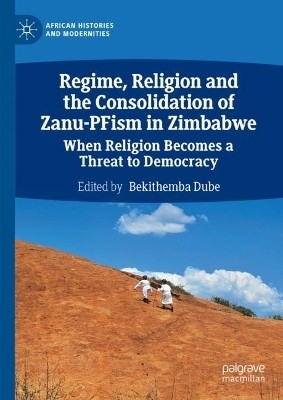Regime, Religion and the Consolidation of Zanu-PFism in Zimbabwe(English, Hardcover, unknown)
Quick Overview
Product Price Comparison
This collection focuses on the role of religious leaders and religious institutions in supporting or resisting the democratization process in Zimbabwe. It scrutinizes the actions of religious leaders such Andrew Wutawunashe and Jeremiah Mutendi who were prominent in the political scene and participated as enablers of the undemocratic regime. The contributors to this volume employ a variety of methodological approaches to understand the operational dilemma of the second republic under Emmerson Dambudzo Mnangagwa, commonly referred to as Zanupfism. It is an empirical study to determine the impact of religious leaders as regime enablers and assess the effects of such an approach in terms of social development, democracy, and social transformation as espoused in the rise of the second republic. In order to balance the narrative, the book highlights and offers critique of religious leaders and institutes who are the resistors of the regime. It specifically explores the Zimbabwe Catholic Bishops Conference, Evangelical Fellowship of Zimbabwe, Zimbabwe Council of Churches, Talent Chiwenga and Shingi Munyeza. This is a critical study of decoloniality in a religious context that documents characters such as Shingi Mayeza, Bishop Mutendi, Mapostori who seldomly appear in scholarship despite their great impact (either positive or negative) on the lives of the people of Zimbabwe.


